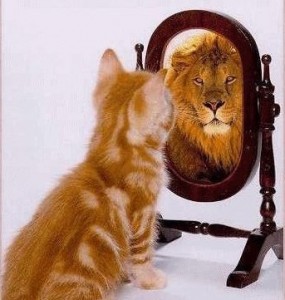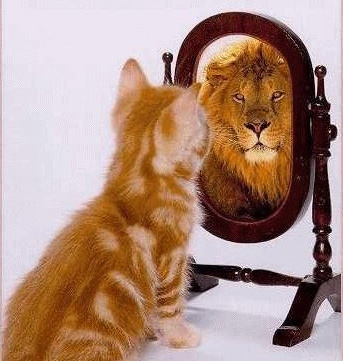 What is truth? Is truth a fact? I can look at my car and say there are four tires. That is a fact. I can look at my car and say it’s red. That is a fact. Or is it? Another person could look at my car and say that it is burgundy. Is burgundy red? Some would say yes and some would say no. So then, what is the true color of my car?
What is truth? Is truth a fact? I can look at my car and say there are four tires. That is a fact. I can look at my car and say it’s red. That is a fact. Or is it? Another person could look at my car and say that it is burgundy. Is burgundy red? Some would say yes and some would say no. So then, what is the true color of my car?
Truth really is a grey area. Recently I attended a writer’s workshop at Grub Street Boston about breaking the rules in non-fiction and a great discussion formed around this topic. At one point the instructor gave us an example of an author that took the liberty to change the number of heart attacks that happened during a particular time, in a particular state, and also the name of a bar in a journalistic piece. The author’s reasoning was that the number four sounded better than eight and Bucket of Blood, as a bar name, was cooler than the actual name of the bar.
Interestingly there was a student in the class that was fine with the number change but thought changing the name of the bar was outright wrong. I felt the opposite. Changing the name of the bar was fine to me but changing a statistical number was appalling to me. I found our contradicting views fascinating. Neither one of us was right nor wrong, we just had different perspectives based on our experiences with the world.
As the author of a memoir, SICK, I write about the memories of my past. I do this to the best of my ability but in all honestly my memory is not the greatest especially when it comes to the time frame of events. Sometimes I’m not sure if an event happened before or after another event so I have to make my best guess. There is also the matter of perception. I’m well aware that I may perceive a past event very differently than someone else that was there. Does that mean one of us is wrong and one of us is right? The reality is that probably both of us are wrong and perceive the past event based on our personal views and experiences. That’s usually how it works in my opinion.
So is what I’m writing not the truth? I don’t think so. It’s my truth, my perception of the world as I understand it. We have a genre called creative non-fiction. This is when writers take true events and makes them more interesting by adding detail and dialog that may not necessarily be true or accurate. I get this. Then there’s the controversy over Jeff Frey’s book A Million Little Pieces that he originally claimed was a memoir but later came clean that the book contained fictionalized events. If you look at this from a business perspective, Frey couldn’t get representation when he tried to sell the book as fiction. Non-fiction is where it’s at now, it’s what sells. So Frey changed his tune and said his book was a memoir and got on Oprah and sold millions of copies. I’m not saying what he did was right but I definitely get it.
What do you think? Is there such thing as truth? Is non-fiction merely one person’s perception of the world? Is creative non-fiction ok?
* * * * *
Jen Smith is author of the memoir SICK which is available at Amazon, Barnes and Noble, and Smashwords. Learn more about Jen and her writing at her blog. You can also find her on Facebook and follow her on Twitter.
This article originally appeared on Jen Smith’s blog on March 27, 2012.


Memory is a subjective thing. Ask any cop interviewing witnesses to an accident. My sister and I remember the same events from out childhood so differently you would not recognize them as the same events. Yet they are both recounted to the best of our ability with no attempt to deceive. I think it one of the origins of the cliche 'history is written by the victor'. Is there 'Truth'? I believe so but I also think none of have a firm grasp on it.
There is only fiction.
It's our job to make people believe "the truth within the lie."
I agree Yvonne. History is definitely written by the victor. And as always JD Mader- thanks for stopping by.
Or to make them see the lies are not the truth
Memory and perspective have SO much to do with "truth". One person's truth may be another person's lie. I think we owe as much truth in non-fiction as possible. To alter statistics from a valid source–NEVER!
You know it Linda!
Well, my computer decided to end my previous comment, so I'll continue here.
Tell the truth as you see if–if you have doubts, admit it–if memory is skewed by being that of a child, say so. But, tell your truth. If others want to argue the point–let them write their own book!
All non-fiction is filtered through the lens of the tellers, because no one is omnipotent and all data requires interpretation. I just want truth from the teller about how much he embellished to make the point, or in Frey''s case, the sale. Journalism bothers me most from this perspective, because the teller presents it as fact, when more and more it is skewed by the connotation of a single word choice, which part of the the truth to tell and what context to leave out. But I will refrain from getting on that soapbox! Thoughtful post.
As a philosophy student I learned that the Truth with a capital T is an abstract and has no objective validity. Even in the real world the truth of that [excuse the pun] can be seen in the huge variety of eye witness accounts about the same event. So where a writer is reconstructing the past and that past is subjective then creative 'truth' is acceptable.
The point at which my lie-meter kicks in however is when I read something by a journalist which purports to be a description of /facts/ and then is shown to be a fabrication. To me this is not creative non-fiction, this is just old fashioned lying. After all what is the definition of a lie? It is something that is told by someone to either gain a benefit or to avoid a punishment.
If changing the name of a real place and messing with the statistics of a number is done to make the telling of an event more palatable in some way then the writer is gaining something. And so I call that a lie in the same way that 'creative accounting' is a euphemism for fraud.
I think we need less 'creativity' in the media, not less.
Well done, Meeks – you beat me to it. Facts versus wilful or intended fabrication (however well-intended), is a better way to view this than by arguing about truth, which is a human construct, like "fairness". Unless one has studied philosophy one fails to understand the strength of the human construct, which is another reason why so many people believe in Good and Evil with big letters.
Because empirical facts are facts, even their interpretation must be based on concrete observations. Even though angle might twist a fact, its solidity remains at the base of things, and needs to remain demonstrable.
Facts need to be expressed by journalists through the angle, perspective, or context through which they name them. Dressing facts up with personal opinion, creative adjustments, or subjective hypotheticals is not always obvious to all. So context should be declared, just as the ingredients need to be stated on a fertilizer packet… it might make your tomatoes grow, but it also might be poisonous.
So many eloquently put points of view. I agree with Krista, this is a very thought provoking article.
In my memoir, ‘Surviving the Battleground of Childhood’, I begin the prologue with the following line:
This is the story of the construction of a personality: the true story, from one person's point of view of course.
I also make another statement which goes something like this:
By viewing a particular event through a certain framework of beliefs.
Is there truth? That all depends on which truth we’re talking about! From one point of view I agree with Yvonne, yes there certainly is truth, and yes again, I believe very few have a handle on it.
From another point of view I agree with JD, ‘There is only fiction.’ Because from any other point of view but the one from which the ‘so called’ truth is observed it does not necessarily exist. Solipsism makes a valid philosophical, although some might say skeptical, hypothesis in regards to this.
You absolutely got that right about history, Jen; it’s definitely written by the conquerors, who write their own version with dry statements of the fact, using that term very loosely here, from their own point of view of course; always casting themselves in the softer, fuzzier light of right.
And Rossanne, I believe that most facts, like truth, whether they are determined through concrete observations (observed by whom and from what slant), are points of view; note that I don’t say, ‘are just points of view. Intent, I think, is the point that most of us agree upon.
I have definitely hogged this space for far too long but I’d like to finish with a quote, by Niels Bohr I think, "The opposite of a correct statement is a false statement. But the opposite of a profound truth may well be another profound truth."
Thank you, Jen, for a most thought provoking post.
Thanks for all the comments folks I truly enjoyed and appreciate all of your feedback.